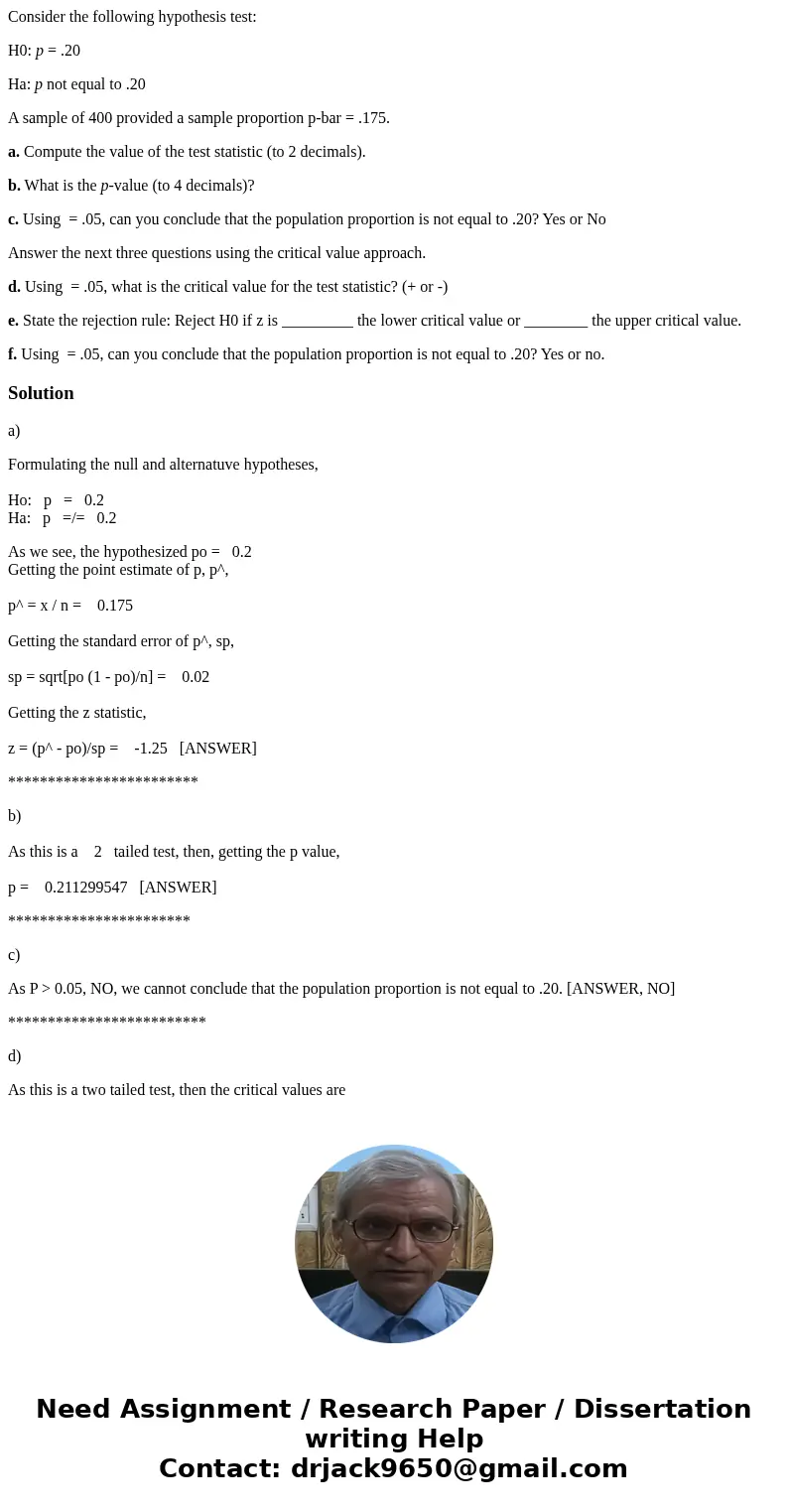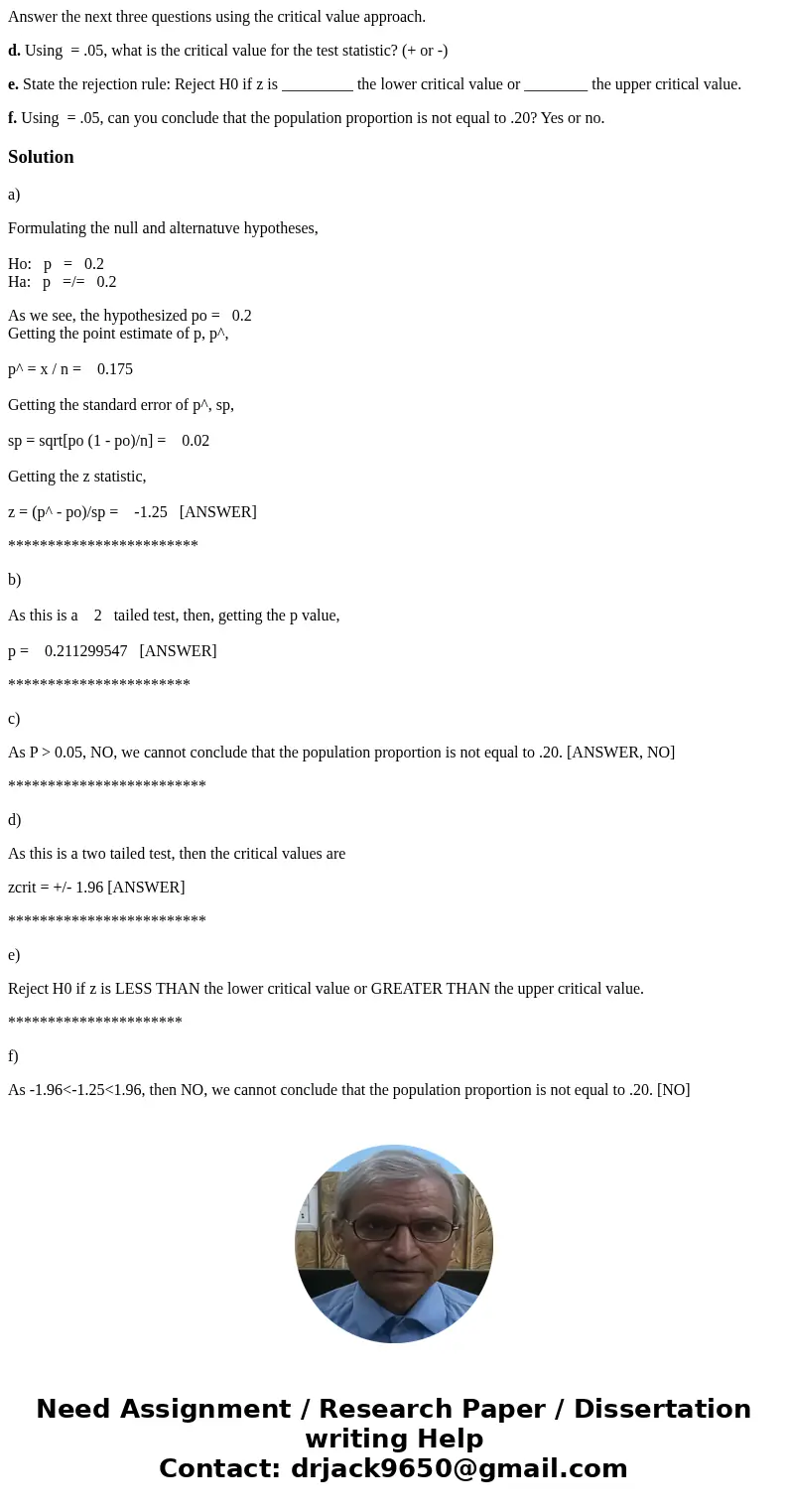Consider the following hypothesis test H0 p 20 Ha p not equ
Consider the following hypothesis test:
H0: p = .20
Ha: p not equal to .20
A sample of 400 provided a sample proportion p-bar = .175.
a. Compute the value of the test statistic (to 2 decimals).
b. What is the p-value (to 4 decimals)?
c. Using = .05, can you conclude that the population proportion is not equal to .20? Yes or No
Answer the next three questions using the critical value approach.
d. Using = .05, what is the critical value for the test statistic? (+ or -)
e. State the rejection rule: Reject H0 if z is _________ the lower critical value or ________ the upper critical value.
f. Using = .05, can you conclude that the population proportion is not equal to .20? Yes or no.
Solution
a)
Formulating the null and alternatuve hypotheses,
Ho: p = 0.2
Ha: p =/= 0.2
As we see, the hypothesized po = 0.2
Getting the point estimate of p, p^,
p^ = x / n = 0.175
Getting the standard error of p^, sp,
sp = sqrt[po (1 - po)/n] = 0.02
Getting the z statistic,
z = (p^ - po)/sp = -1.25 [ANSWER]
************************
b)
As this is a 2 tailed test, then, getting the p value,
p = 0.211299547 [ANSWER]
***********************
c)
As P > 0.05, NO, we cannot conclude that the population proportion is not equal to .20. [ANSWER, NO]
*************************
d)
As this is a two tailed test, then the critical values are
zcrit = +/- 1.96 [ANSWER]
*************************
e)
Reject H0 if z is LESS THAN the lower critical value or GREATER THAN the upper critical value.
**********************
f)
As -1.96<-1.25<1.96, then NO, we cannot conclude that the population proportion is not equal to .20. [NO]


 Homework Sourse
Homework Sourse